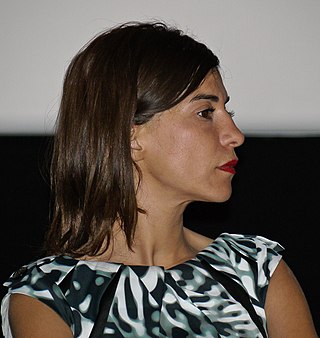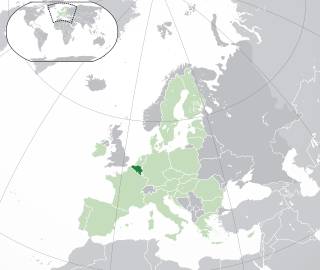| Pater Damiaan terug | |
|---|---|
| Directed by | Clemens De Landtsheer |
Release date | 1936 |
Running time | 50 minutes |
| Country | Belgium |
| Language | Dutch |
Pater Damiaan terug is a 1936 silent documentary short directed by Clemens De Landtsheer. It deals with the return of the last remains of Belgian priest Father Damien from Molokai to his birthplace in Belgium. [1] [2]

Father Damien or Saint Damien of Molokai, SS.CC. or Saint Damien De Veuster, born Jozef De Veuster, was a Roman Catholic priest from Belgium and member of the Congregation of the Sacred Hearts of Jesus and Mary, a missionary religious institute. He was recognized for his ministry, which he led from 1873 until his death in 1889, in the Kingdom of Hawaiʻi to people with leprosy, who lived in government-mandated medical quarantine in a settlement on the Kalaupapa Peninsula of Molokaʻi.

Tremelo is a municipality located in the Belgian province of Flemish Brabant, in Flanders. The municipality comprises the towns of Baal and Tremelo proper. On January 1, 2006, Tremelo had a total population of 13,725. The total area is 21.57 km² which gives a population density of 636 inhabitants per km².
Popular monarchy is a term used by Kingsley Martin (1936) for monarchical titles referring to a people rather than a territory. This was the norm in classical antiquity and throughout much of the Middle Ages, and such titles were retained in some of the monarchies of 19th- and 20th-century Europe.

Molokai is the fifth most populated of the eight major islands that make up the Hawaiian Islands archipelago in the middle of the Pacific Ocean. It is 38 by 10 miles at its greatest length and width with a usable land area of 260 sq mi (673.40 km2), making it the fifth-largest in size of the main Hawaiian Islands and the 27th largest island in the United States. It lies southeast of Oʻahu across the 25 mi (40 km) wide Kaʻiwi Channel and north of Lānaʻi, separated from it by the Kalohi Channel.

Mercator is a steel-hulled barquentine built in 1932 as a training ship for the Belgian merchant fleet. She was named after Gerardus Mercator (1512–1594), a Belgian cartographer. She was designed by G.L. Watson & Co. and built in Leith, Scotland and launched in 1932.

De Grootste Belg was a 2005 vote conducted by Belgian public TV broadcaster Canvas, public radio broadcaster Radio 1, and newspaper De Standaard, to determine who is the Greatest Belgian of all time. It could be considered as a Flemish list, considering that French-speaking community broadcast RTBF also held a vote, Le plus grand Belge. Nominees needed to have lived between 50 BC and now, between the borders of present-day Belgium. This is because Belgium only gained its independence in 1830, while numerous historical individuals from, for example, the Spanish Netherlands, are considered to be "Belgians".

Lubna Azabal is a Belgian actress.
Damian is a surname. Notable people with the surname include:

Jozef Maria Raskin was a Belgian artist, painter, draftsman, and Scheutist missionary who served in World War I and became a missionary in China from 1920 to 1934. Later, during World War II, he was drafted into the Belgian army as a chaplain and was a personal advisor to King Leopold III. While operating under the code name Leopold Vindictive 200 for the Belgian resistance, on 1 May 1942 he was arrested by the Gestapo, tried and convicted, and on 18 October 1943 was guillotined. A statue honoring his service stands in Aarschot. After World War II, a book about Raskin's exploits in both world wars was written by Jozef De Vroey, himself a Catholic priest and survivor of both these conflicts, under the title Pater Raskin in de beide wereldoorlogen.
Landry Mulemo is a Congolese professional footballer.

Euro gold and silver commemorative coins are special euro coins minted and issued by member states of the Eurozone, mainly in gold and silver, although other precious metals are also used in rare occasions. Belgium was one of the first twelve countries in the Eurozone that introduced the euro (€) on 1 January 2002. Since then, the Belgian Royal Mint have been minting both normal issues of Belgian euro coins, which are intended for circulation, and commemorative euro coins in gold and silver.

Tripel is a term used by brewers mainly in the Low Countries, some other European countries, and the U.S. to describe a strong pale ale, loosely in the style of Westmalle Tripel. The origin of the term is unknown, though the main theory is that it indicates strength in some way. It was used in 1956 by the Trappist brewery, Westmalle, to rename the strongest beer in their range, though both the term Tripel and the style of beer associated with the name, were in existence before 1956. The style of Westmalle's Tripel and the name was widely copied by the breweries of Belgium, and in 1987 another Trappist brewery, the Koningshoeven in the Netherlands, expanded their range with a beer called La Trappe Tripel, though they also produced a stronger beer they termed La Trappe Quadrupel. The term spread to the U.S. and other countries, and is applied by a range of secular brewers to a strong pale ale in the style of Westmalle Tripel.

The Grand Duchy of Flandrensis is a micronation with claims over some territories of Antarctica, which was founded in 2008 by the Belgian Niels Vermeersch. Flandrensis is not recognised by any country or government, nor it is in their intention to get diplomatic recognition. Since 2021 the micronation is registered in Belgium as the environmental non-profit organization “vzw Groothertogdom Flandrensis”.
Thomas Briels is a Belgian field hockey player who plays as a forward for Braxgata. He played a total of 359 times for the Belgium national team from 2006 until 2021.
Sébastien Dockier is a Belgian field hockey player who plays as a forward for Dutch Hoofdklasse club Pinoké.
Frank Van Passel is a Belgian film director and producer. In 1995, he made his directorial film debut with Manneken Pis, which premiered at the 1995 Cannes Film Festival and won the Mercedes-Benz Award, Grand Golden Rail, Award of the Youth and the Prix Guillermo del Toro. The film received the André Cavens Award for Best Film and four awards at the Joseph Plateau Awards. Van Passel's next film, Villa des Roses (2002), was adapted from the 1913 novella of the same name by Belgian writer Willem Elsschot. The film starred Julie Delpy, Shaun Dingwall and Shirley Henderson. It won Best Feature at the Hollywood Film Festival and was nominated for three awards at the British Independent Film Awards. His TV-series received numerous awards, including a Special Commendation Prix d'Europe and the FIPA D'OR Grand Prize in Biarritz for The Emperor of Taste and the TV-critics Award and De HA! van Humo for Terug naar Oosterdonk. He was co-founder of Caviar, a production company with offices in Brussels, Antwerp, Los Angeles, Paris, Amsterdam, London and Prague. Since 2018 he has been working as a freelance director, directing theatre and TV series such as Dag Sinterklaas (Ketnet) and Renaissances (TF1).

Royal Basketball Club Pepinster is a Belgian basketball club that is located in the Verviers-Pepinster area of Liège Province, Belgium. The club currently competes in the Belgian Fifth Division, the fifth tier of Belgian basketball. Before, the team used to be a regular participant of the Basketball League Belgium. The team club plays its home games at the 4,000 seat Hall du Paire.
Ivan Thys was a Belgian footballer who played as a forward.

Big Brother is the Dutch & Belgian cooperation version of the international reality television franchise Big Brother produced by Endemol. The show aired in Netherlands on RTL5 and in the Flemish Region on VIER/Play4 and has had a total of three seasons. The first season of the show aired in 2021. A fourth season will air in 2024.

The Burden of Belief is a book by the Catholic author Ida Friederike Görres about the challenges of Christian faith in the modern era. The book was first published in German in 1932 as Von der Last Gottes: Ein Gespräch über den Menschen und den Christen under the author's maiden name, Coudenhove. It was translated into English in 1934. The British Dominican priest, Gerald Vann, wrote the introduction to the English edition. It was also translated into French and Dutch.